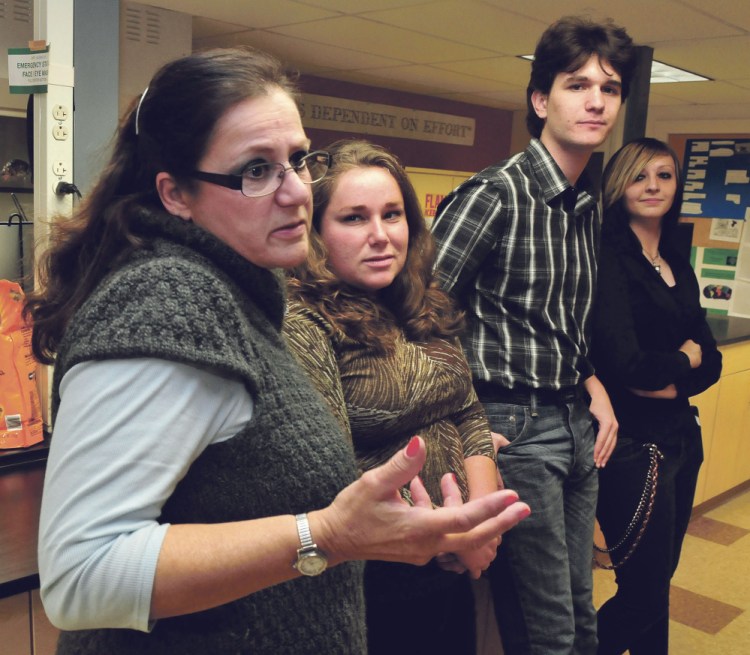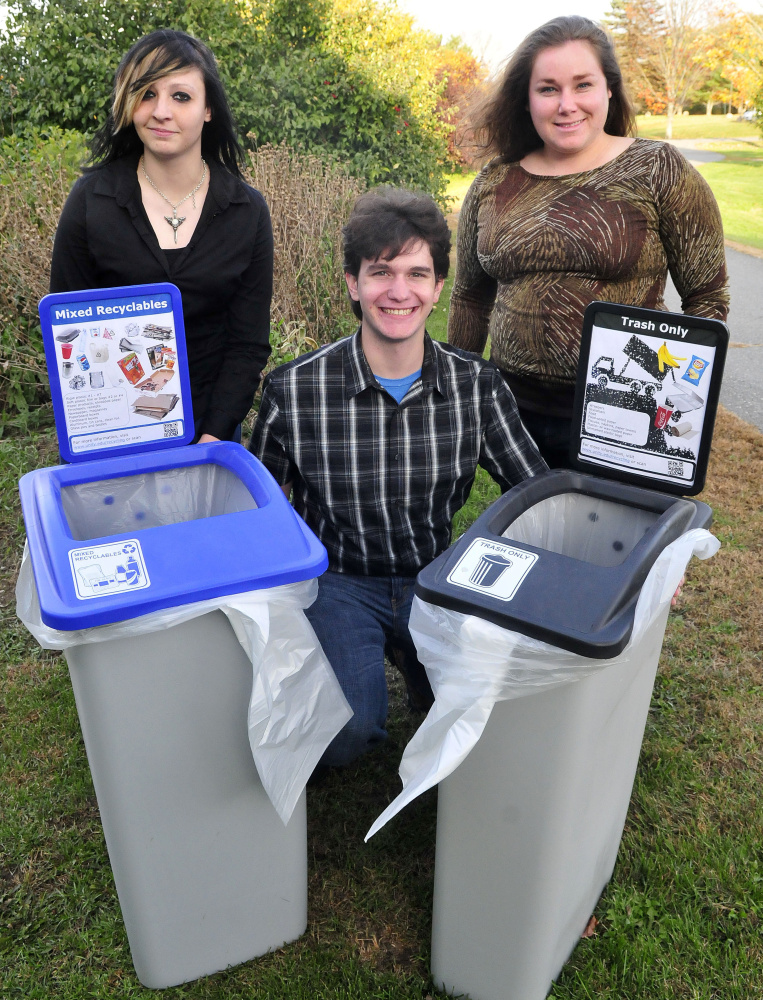WINSLOW — Residents will get a chance to weigh in on the future of the town’s trash and recycling program at the polls next month, thanks to a survey developed by students from Unity College.
A town committee is looking at changes to the town’s solid waste program in an effort to save money and boost recycling rates, but it wants public input so residents don’t feel as though changes, which could include a pay-per-bag trash disposal system or curbside recycling pickup, are being imposed on them.
“We want to get buy-in from the town,” said Wilma Lombardi, a committee member and chemistry professor at Unity College.
The committee intended to pose a question to voters in November about possible changes, but coming up with a single question to gauge the town’s opinion was too challenging, Lombardi said.
Instead, Lombardi turned to three of her students, juniors Jenna Rippee, Grace Wilson and Henry Symanski, to develop a survey.
Since September, the students have been meeting with the committee and working on a survey voters can fill out Nov. 3 during the municipal and state elections.
The 14-question survey includes yes-or-no questions about whether the respondents own or rent their homes, whether they want pay-as-you-throw or curbside recycling, whether they would be willing to pay more in taxes for waste services, whether they are willing to sort recyclables and what materials they would recycle. The survey is anonymous, but respondents will have to sign a release from the college.
After the elections, the students plan to tabulate and analyze the survey results and submit them to committee members.
In an interview in their chemistry laboratory at the Unity campus Tuesday, the three young researchers said it took only an hour or so to come up with the questions, but they were chosen and worded carefully.
“We wanted to make sure it was very specific, but also that it didn’t have that much jargon so everyone could understand,” Wilson said.
The three students were drawn to the survey project because it provided a way to work on a real-world situation rather than running tests in a laboratory or working on Unity’s campus.
“We were actively involved with the public and doing something with the community,” Symanski said.
Although the students got no class credit for their work on the survey, they hope to present their research at a student conference next year. Trying social science research also can help them in future careers.
Wilson and Symanski study wildlife biology and understand how important public input is in wildlife management plans. Rippee, who studies sustainable energy, said she expects to work with the public often. Developing the survey also gave her a view outside the Unity College bubble, Rippee said. At a school so focused on the natural environment and sustainability, it can be hard to remember that many people don’t have a deep connection to those issues, she said.
“It helps us relate to the general public,” Rippee said.
The survey findings probably will inform whatever plan the committee ultimately recommends to the Town Council. In April, the committee reported to the council that it wanted to increase recycling rates from 5 percent to 25 percent, which could reduce current disposal costs by $40,800. The town’s solid waste budget for this year is $493,000. Winslow residents can deposit recyclables in bins at the public library, but there is no curbside pickup or requirement to recycle. That means glass, paper, aluminum and other recyclable materials go into the normal waste stream, and the town has to pay to dispose of them.
Winslow is one of almost 200 Maine communities that are considering changes after their 30-year contracts with Penobscot Energy Recovery Co. run out in 2018. The communities are obligated to send their waste to the PERC waste-to-energy incinerator in Orrington and pay transportation costs and tipping fees. After 2018, PERC will not be able to sell electricity for subsidized above-market rates, and disposal fees charged to towns and cities are expected to increase substantially.
The Municipal Review Committee, the group that represents 187 municipalities sending waste to PERC, is working on a proposal with Maryland company Fiberight to build a waste-biomass plant in Hampden as an alternative to PERC.
Peter McGuire — 861-9239
Send questions/comments to the editors.




